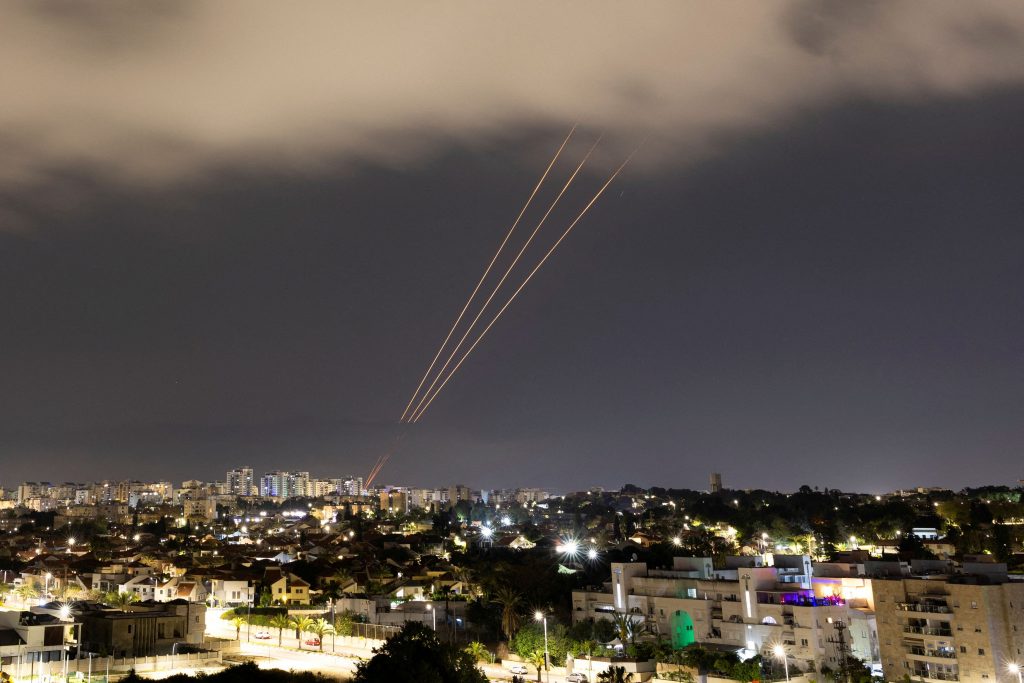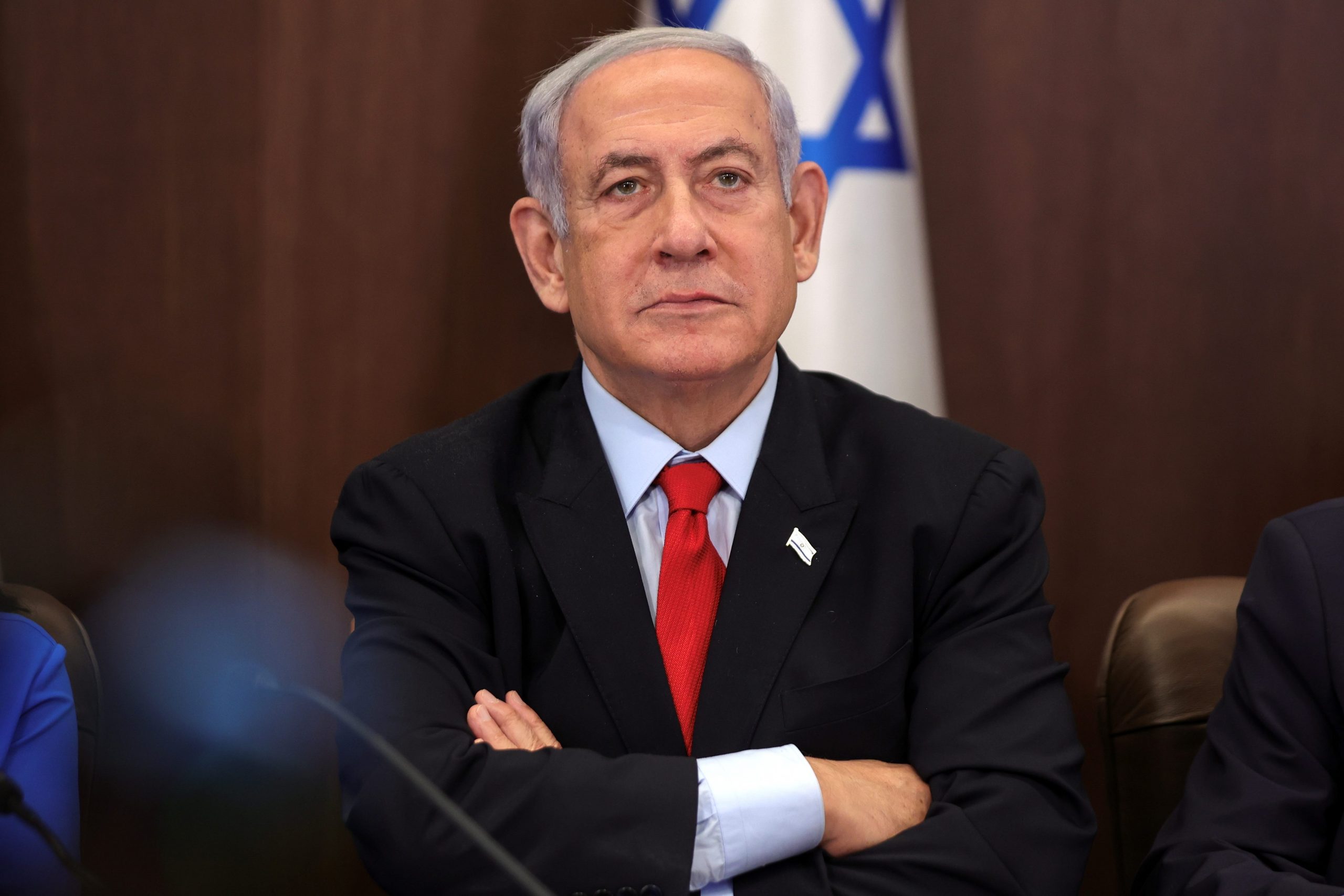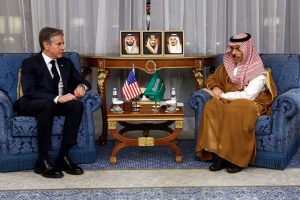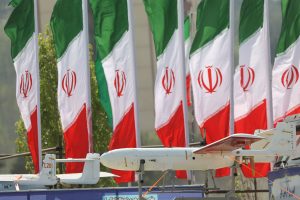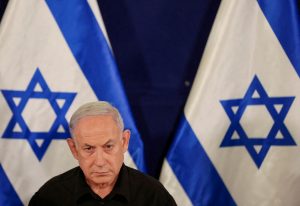WASHINGTON—The Biden administration is pushing for a long-shot diplomatic deal in coming months that presses Israeli Prime Minister Benjamin Netanyahu to accept a new commitment to Palestinian statehood in exchange for diplomatic recognition by Riyadh, U.S. and Saudi officials said.
As inducements to recognize Israel, the White House is offering Riyadh a more formal defense relationship with Washington, assistance in acquiring civil nuclear power and a renewed push for a Palestinian state—a package that U.S. officials say they are in the final stages of negotiating.
The U.S.-brokered effort offers Israel a prize it has long sought: a historic normalization deal with Riyadh, Israel’s most powerful Arab neighbor.
U.S. officials say the successful multicountry effort to shoot down Iranian missiles and drones on Saturday should make it clear to Israel that its security against threats from Tehran can be enhanced through closer integration with Saudi Arabia.
For President Biden the gambit offers the chance of a significant diplomatic breakthrough in the middle of a presidential-campaign year, one that would expand the Abraham Accords that his Republican opponent Donald Trump sealed when he was in office. The accords led to the normalization of relations between Israel and the United Arab Emirates, Bahrain and Morocco.
But persuading Netanyahu to embrace talks on establishment of a Palestinian state remains a difficult hurdle, with right-wing members of his government and much of the Israeli public opposed to statehood after the deadly Oct. 7 attack on southern Israel, U.S. and Israeli officials say.
Saudi Arabia’s leaders have said for decades that a Palestinian state is a priority, and its top diplomats have said creating a path to a two-state solution is part of their price for normalization. Now, Saudi officials have privately indicated to the U.S. that they might accept verbal assurances from Israel that it would engage in new talks on Palestinian statehood to secure the other parts of the deal of more interest to Riyadh, Saudi officials said.
A U.S.-brokered deal might also aid Israel with a potential exit strategy from Gaza once that conflict is brought to an end, Saudi officials said. The U.S. has sketched out a postwar plan that would draw on troops from Arab states to secure Gaza.
But several potential Arab contributors say they wouldn’t consider participating without public moves by Israel toward establishment of a Palestinian state, among other requirements.
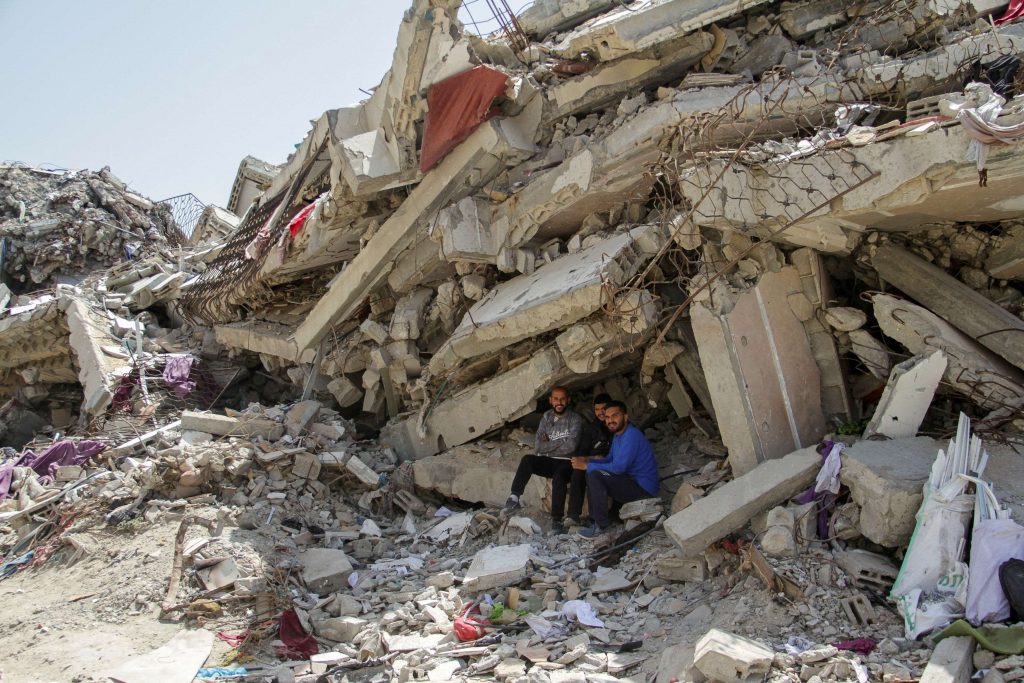
Palestinians sit at the rubble of a residential building destroyed by Israeli strikes, amid the ongoing conflict between Israel and Hamas, in the northern Gaza Strip, April 22, 2024. REUTERS/Mahmoud Issa
The U.S. on Thursday vetoed a resolution in the United Nations Security Council, blocking a bid for U.N. membership by the Palestinian Authority. State Department spokesman Vedant Patel called the measure premature, saying it “will not achieve statehood for the Palestinian people.”
If the U.S. completes a deal with Riyadh but Israel balks at endorsing a Palestinian state, a senior U.S. official might give a speech laying out the benefits Israel could receive if it accepted the diplomatic package, according to one idea being discussed within the Biden administration.
Secretary of State Antony Blinken offered a preview of the U.S. message earlier this year at the World Economic Forum in Davos, Switzerland.
“You now have something you didn’t have before, and that is Arab countries and Muslim countries even beyond the region that are prepared to have a relationship with Israel,” Blinken said at the January meeting. “But you also have an absolute conviction by those countries, one that we share, that this has to include a pathway to a Palestinian state.”
The U.S. discussions with Saudi Arabia over normalization are aimed at settling several issues, including security arrangements between Washington and Riyadh, U.S. help in acquiring civil nuclear power and moving forward toward the establishment of a Palestinian state, which U.S. officials have said must include reform of the Palestinian Authority .
Another goal in these discussions, U.S. officials say, is to limit China’s influence in the region and further isolate Iran by tying Riyadh more closely to Washington’s closest ally in the region.
For the Saudis, obtaining more concrete defense commitments from the U.S. is an important goal. Pentagon assistance to Riyadh in beefing up its defenses against Iranian missiles and drones is an area of potential agreement, according to a U.S. official, but details of the talks on defense and nuclear assistance haven’t been made public.
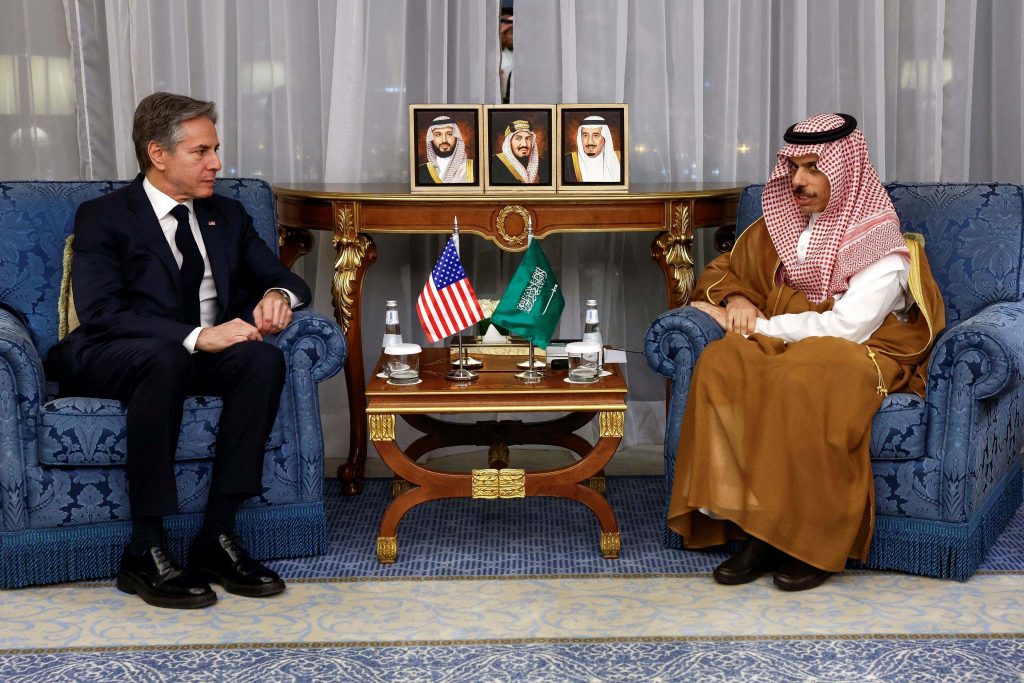
U.S. Secretary of State Antony Blinken spoke with Saudi Foreign Minister Prince Faisal bin Farhan last month. SAUDI PRESS AGENCY
Blinken discussed normalization with Saudi Crown Prince Mohammed bin Salman during a March 20 visit to Jeddah, and said the next day an agreement seemed to be within reach.
“The progress is good, it’s real,” Blinken said. “I can’t put a time frame on it, but we are I think getting close to a point where we’ll have agreements.”
U.S. national-security adviser Jake Sullivan had planned a trip to Saudi Arabia earlier this month, but the trip was canceled after he broke his rib in a minor accident.
An earlier White House push for a diplomatic deal was derailed by Hamas’s Oct. 7 attack on Israel, which led to Israel’s military air and ground incursion in Gaza.
Arab officials say that a temporary cease-fire in Gaza would make it easier for the Saudis to conclude their portion of the U.S.-brokered draft agreement. But separate talks on halting the fighting and the release of hostages held by Hamas and prisoners detained by Israel are stymied.
Israel is also determined to proceed with a military operation in the coming months against Hamas in Rafah, the Gaza city near the Egyptian border where more than one million Palestinians have sought refuge from the fighting.
Sullivan held talks Thursday with Israel’s minister for strategic affairs, Ron Dermer, and the head of its national-security council, Tzachi Hanegbi—two of Netanyhau’s closest advisers—on U.S. concerns about the Rafah operation and on efforts to enhance Israel’s defenses “with a broad array of military partners,” the White House said in a written statement.
The Biden administration has publicly urged Israel to refrain from a major ground operation in Rafah , fearing it could harm civilians and further isolate Israel in international opinion, including in Arab capitals with sensitive talks over normalization and postwar arrangements for Gaza under way.
Netanyahu has argued there can be no postwar plan for Gaza without the complete dismantlement of Hamas. He has also said the chances for normalization with Saudi Arabia will improve after Hamas’s defeat.
Netanyahu has been staunchly opposed to the creation of a Palestinian state, arguing it would undermine Israeli security. In January, he said Israel must maintain security control of Gaza and the West Bank for the foreseeable future.
But Netanyahu has also tempered his opposition to a Palestinian state several times during previous stints as prime minister, under pressure from Washington. Doing so this time, however, would likely require him to reorganize his current governing coalition, which includes far-right parties.
The most vocal proponent inside the Israeli government for a Saudi normalization deal has been minister Benny Gantz , a member of the three-member war cabinet and a Netanyahu rival. Most polls show Gantz is the most popular leader in Israel today.
In a statement at the start of this month, Gantz said a Saudi normalization deal as well as an international effort involving moderate Arab states to provide security and aid in Gaza “is in reach.”
Israel and Saudi Arabia already cooperate in secret on security and other issues. Gantz said that formal diplomatic recognition would help forge an alliance against Iran, which he accused of trying to spark a regional war. Though he has avoided talking about the issue of a Palestinian state since Oct. 7, he has often talked about reconciliation and peace once the fighting is over in Gaza .
Some Israeli leaders, even those who previously supported a two-state solution for Palestinians, are concerned that agreeing to statehood now would be seen as rewarding the Palestinians for Hamas’s deadly assault on southern Israel. But U.S. officials counter that providing a political pathway for Palestinian aspirations is necessary as a nonviolent alternative.
According to a recent public-opinion poll in January, 59% of Jewish Israelis oppose an agreement that would lead to a Palestinian state, even if it led to peace agreements with Arab states.
Write to Michael R. Gordon at michael.gordon@wsj.com , Summer Said at summer.said@wsj.com and Gordon Lubold at gordon.lubold@wsj.com
